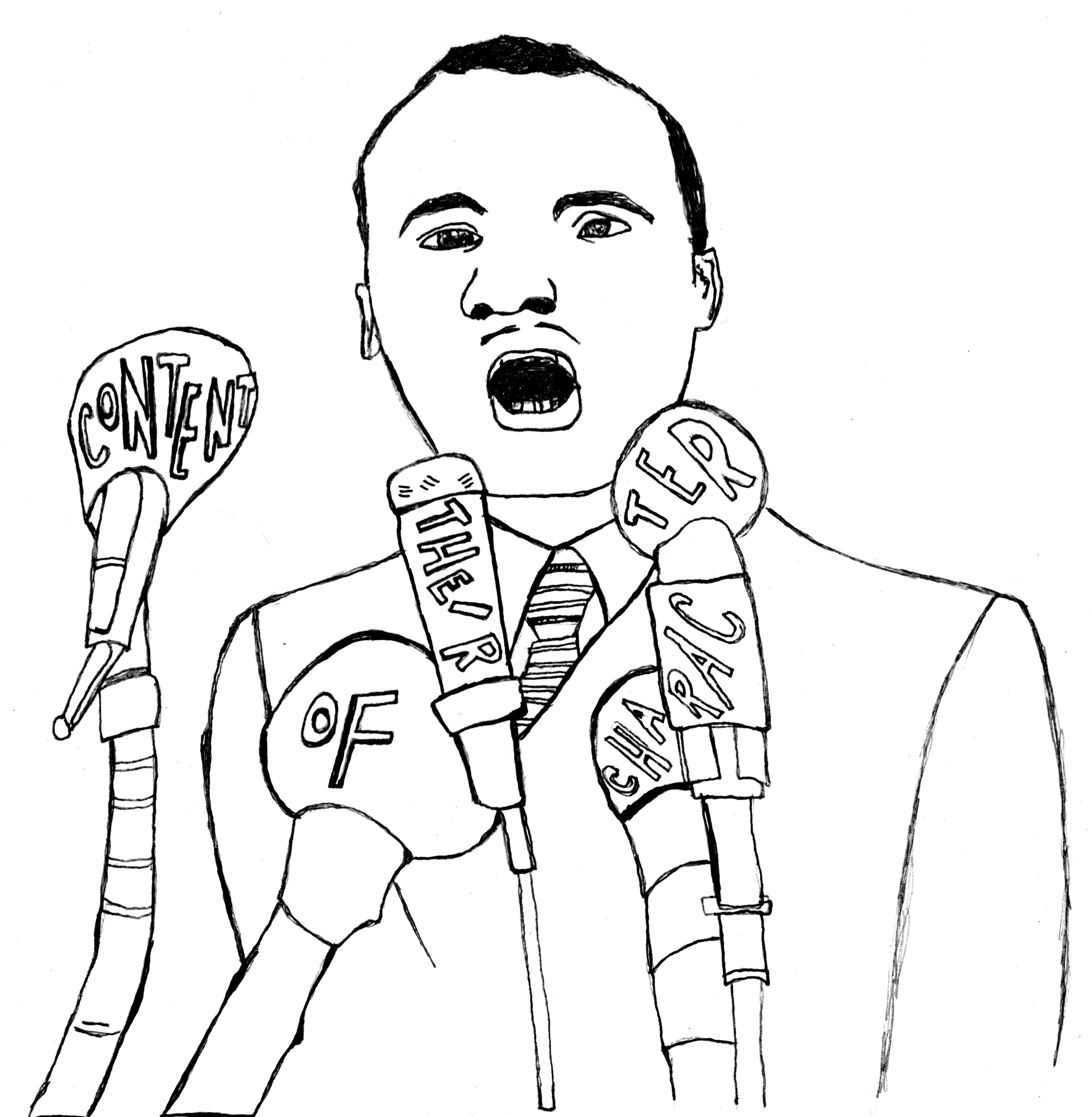Identity politics distract from the individual
March 3, 2017
 This
piece represents the opinion of the author
s.
This
piece represents the opinion of the author
s.
There are two common categories of identity: those we choose for ourselves and those into which we are born. The former enables proactive, dynamic and deliberate self representation, and it is fashioned by freedom. The latter indicates our heritage and original impressions. In American colleges and increasingly throughout society, we emphasize the importance of our innate identities at the expense of those that we choose. Identifying ourselves, our race, our ethnicity, our religion, our sexual orientation and our gender should not trump our passions, interests, ideas and daily choices. When they do we often form exclusionary tribal groups, view our politics as a zero-sum game and logical persuasion takes a backseat to the whims of emotion.
Innate identities offer us meaning and comfort. We must, however, fight against indiscriminately absorbing all preconceived beliefs associated with said identities. Such beliefs only form the lens through which we first view the world. As we mature, we become more aware and introspective, thus broadening our perspectives. The purpose of education is exploration and eventual discovery of our own unique ideas.
The identities we choose for ourselves, our majors, our friends, our career choices, the shows we watch and the books we read—to name a few—greatly determine self-conception. These identities are not constant or rigid; we arrive at them by rational coherent logic and they evolve as we grow.
The groups we form around our identities are either tribalist or communal; the line between them thin. Both categories require a foundational shared identity and both foster commonality. However, tribalism’s common identity tends to be of birth rather than choice, whereas community can be fostered around any identity. Tribalism thrives on an “us vs. them” dynamic, while community advances friendly competition and relationships. Communities generally do not dictate thoughts, interests and time spent outside the group. Tribalism pushes groupthink throughout other aspects of its members’ lives and closes the window to outside influence.
Identity politics, as defined today, refers to the origin of ideology dependent on our innate identities. Its alternative could be called “logical politics”—ideology chosen due to reflection, reason and life experiences. Major overlap exists between the two; innate identities surely influence life experiences. Problems arise when we cannot dissociate political disagreement from identity conflict.
A significant portion of the blame for the rancorous and divisive 2016 election has been attributed to a growing obsession with identity. Pundits declare that Secretary Clinton singled out individual groups, which amounted to a perceived neglect of the white working class. When candidates mention identity, inevitably some groups will be left out.
Identity politics reduce elections from comparisons of vision and general policy directions to a comparison of which candidate can best benefit specific identity groups. This is a spoils system and the beginnings of a zero-sum game. In such chaos voters pay little attention to dissonant platforms, incoherent policies and impossible promises so long as their identity group is promised benefits.
Identity politics are the starting point of a society emphasizing some innate identities over others. Such emphasis has led to humanity’s greatest atrocities. Overemphasis of racial identity in America has spawned neo-Nazis, the KKK, Japanese incarceration and segregation. Overemphasis of religion has led to terrorism, discrimination and forced conversions. The excessive emphasis on innate identities spills over from animosity to distortions of perceived reality and facts.
The action of individuals forming innate identity “tribes” eventually leads to a “post-truth society.” In this action, the logic, reasoning and science of individuals outside of their own identity groups matter little. When we repeatedly chastise whole groups, they become less responsive. Emotional bonds surround tribalism and identity politics which, when established, are difficult to undermine or weaken.
Individuals and their choices must matter more to our individuality than the things we cannot control. College students gain from pondering who they want to become, rather than who they are. Candidates and elections must focus on appealing to the maximum number of individuals rather than attracting disparate groups. We must regain the power of facts, reason and debate, over that of emotion.
Martin Luther King Jr. dreamed of the day when Americans would be judged by the “content of their character,” not the color of their skin. This dream is obstructed with a heightened adherence to innate identities.
The greatest men and women of history were those who broke from the ideology typical of their born identities and charted an individual course. Abraham, Jesus and Muhammed; Martin Luther and Galileo; American revolutionaries and Abraham Lincoln; Jane Addams and Dorothy Day; Rosa Parks and Martin Luther King Jr. changed the course of history because they confronted and defied the roles expected of them and their identities. The sum of our individualities is greater than our various identities.


Comments
Before submitting a comment, please review our comment policy. Some key points from the policy: